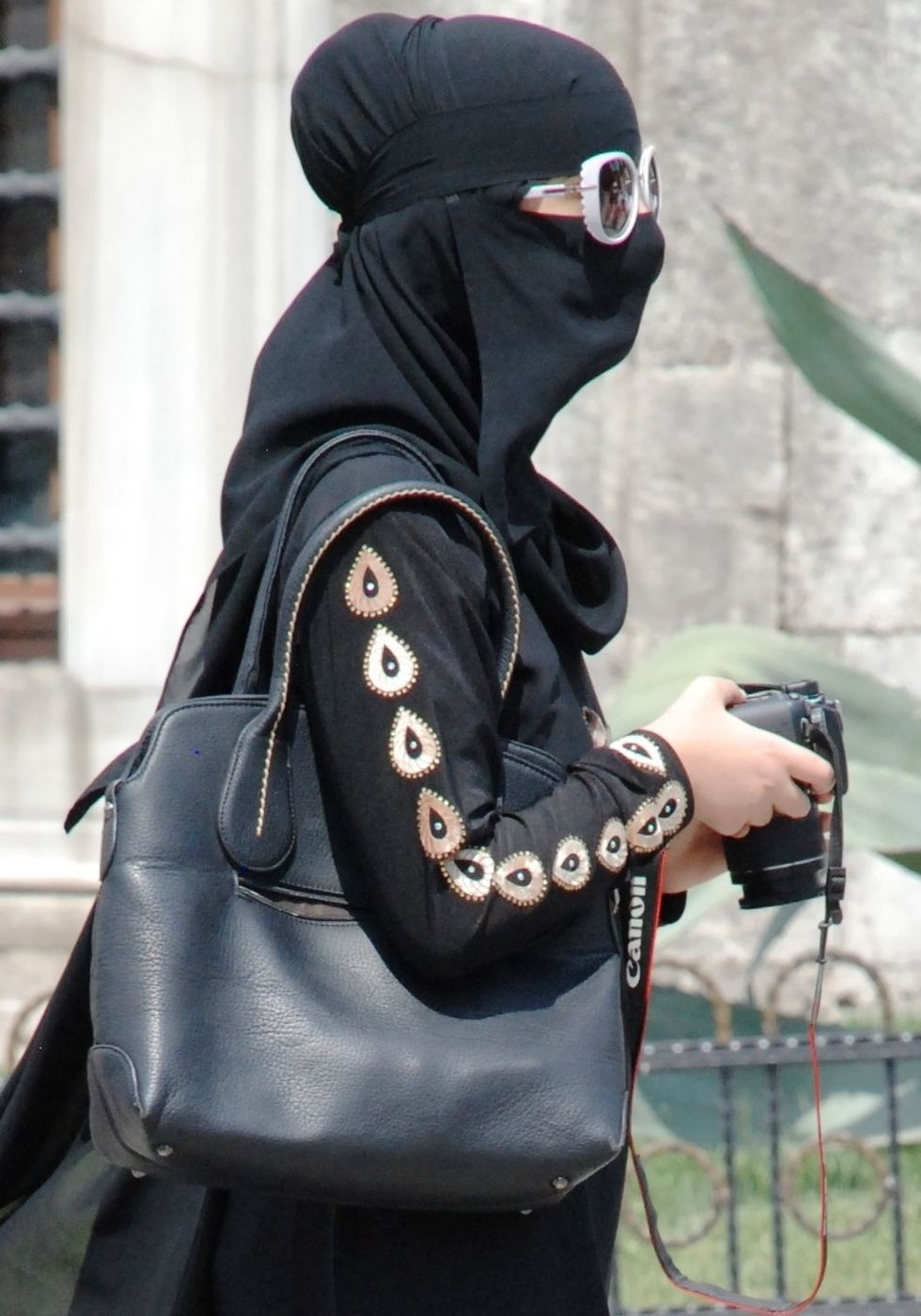When people see a headscarf, they automatically think Muslim woman. And in most cases, it's a very accurate and logical assumption to arrive at — in Islam, women cover their heads with the hijab and the hijab has come to represent a symbol of the Islamic faith and the religious diversity present among individuals.
The Niqab is slightly different, in that it is a face covering donned by a minority of Muslim women. It isn't a religious obligation, according to some scholars, but it is a traditional part of the Islamic culture and religion and some scholars believe that it is actually mandated in Islam. Regardless of the religious jurisprudence, the fact is that many women in Denmark feel that the new law which was passed banning any sort of face covering is directed towards them — and honestly, that's what it sounds like.
Denmark politicians claim that the law prohibits any face covering and so is not targeted towards any religion but this really doesn't change the fact that Muslim women who don the Niqab are feeling targeted now because their lifestyle is under attack. The Niqab is a part of their identity, like a statement necklace or an amulet passed down through generations and suddenly these women are being told they will be penalized for showcasing this piece of their identity.
I don't believe this law is likely to have any significant effect on public safety, but the adverse effect on Muslim women in Denmark will definitely be palpable as well as the underlying influence of such political decisions in the global arena. Women who are used to wearing the Niqab now have to make a choice: they can continue to stand up for their rights and don the Hijab, regardless of the threat of being perceived as a criminal by their country's police, merely for choosing to respect a religious rite; they might also feel pressured into giving up the Niqab which I think would exhibit nothing more but that the law is oppressive and targets religious freedom.
My mother, here in the U.S., began wearing the Niqab about two years ago. Even though I may not wear it, I respect and admire my mother for her religious convictions and the beliefs that led her to make this decision, because it is not the easiest decision to make. Now, I worry that laws like these might have influences here, with people becoming more vocal and adamant about expressing Islamophobic views that include calling for bans of hijabs, Burqas or niqabs here in America.
At the same time, I can see how this would dishearten several girls who might have been considering adopting the face veil and even dissuade girls from donning the hijab because of fears that they will be persecuted for it. In a society that is already struggling from a lack of security, in a world where Islamophobic attitudes are still rampant, I believe political decisions like these only add to the growing flames of distrust and miscommunication that exist among us. Religious freedom includes dressing how we want and I believe entitling every individual to that freedom is necessary if we are to move forward with tolerance and above all respect for each individual's beliefs and convictions.





 Lumiere figure at the Disney Store at the Ala Moana Shoppi… | Flickr
Lumiere figure at the Disney Store at the Ala Moana Shoppi… | Flickr








 StableDiffusion
StableDiffusion StableDiffusion
StableDiffusion 10. Extra BlanketsJuwenin Home 100% Cotton Knitted Throw Blanket
10. Extra BlanketsJuwenin Home 100% Cotton Knitted Throw Blanket StableDiffusion
StableDiffusion StableDiffusion
StableDiffusion File:Kishlaru familie.jpg - Wikimedia Commons
File:Kishlaru familie.jpg - Wikimedia Commons Photo by Hanna Balan on Unsplash
Photo by Hanna Balan on Unsplash StableDiffusion
StableDiffusion black blue and yellow round illustrationPhoto by
black blue and yellow round illustrationPhoto by 





 woman holding glass jar
Photo by
woman holding glass jar
Photo by 








